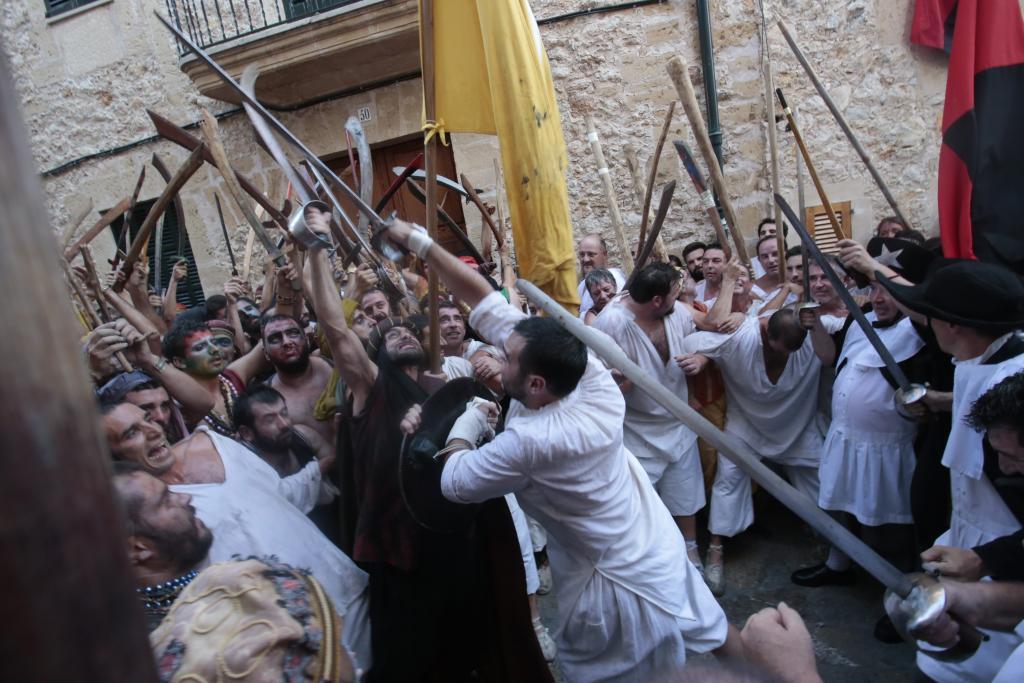Arguments there are as to what is Majorca's greatest fiesta event, and one of the principal candidates for that accolade is the re-enactment of the 1550 confrontation between Moors and Christians in Pollensa. Coming as it does at the height of summer, it arguably attracts greater interest than others, though this does overlook the competing claims of, among others, Majorca's winter fiestas for Sant Antoni and Sant Sebastià as well as Soller's own Moors and Christians in May.
The battle, as ever, took place yesterday evening. The opening exchange, also as ever, was between the leader of the "pollencins", Joan Mas, and the supreme commander of the Ottoman navy, the "pirate" Dragut. Amidst silence, Joan Mas called on the help of Pollensa's patron, Our Lady of the Angels: "Mare de Déu dels Àngels, assistiu-mos. Pollencins, aixecau-vos, que els pirates ja són aquí!"
There were more Moors than ever this year, determined to try and reverse the battle result of a simulation that has been staged since the mid-nineteenth century. Despite this greater strength, the outcome, with the final clash taking place on the old football ground of Escarrintxo, was as always.
In the original clash, 130 "pollencins" and 50 Moorish invaders were said to have lost their lives. The battle didn't take place on 2 August but on 31 May, the invading force having landed in Formentor on the night of 30 May. The reason for the August date was to coincide with the fiestas for the patron, La Patrona.
Though the result will always be the same, might there be a change to the make-up of the line-ups? There is a debate as to the role played by the women of Pollensa. More than just a token presence, the chronicles of the Pollensa-born historian Ramon Picó i Campanar suggest that they played a more active role, at least in the original simulation.
This participation is, however, disputed. There is no record, from the time of the battle, of women having fought. This said, there are various debates as to the accuracy of what happened all those years ago.


3 comments
To be able to write a comment, you have to be registered and logged in
Hi Andy, I wasn´t going back that far.As you know "moros" is a derogatary name for anyone coming from N Africa or the middle East.I understood it to be a way of not offending people of that part of the world who live here.I sometimes wonder how long this fiesta will be able to carry on without arisng tensions amongst this growing population of immigrants.Simon
Yes Simon, and they weren't Turks were they. Many were North Africans. Others were exiled Spanish Muslims and Jews serving under Ottoman sea captains. Some were slaves who either had to fight for their masters or die.
I notice that the local papers are now describing the Moors, as "Turks".